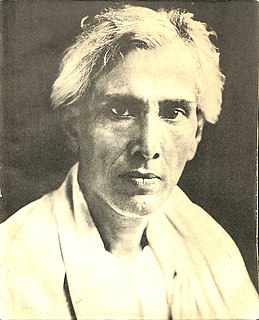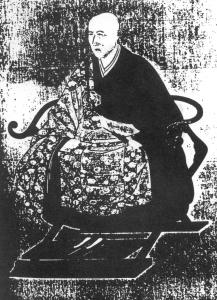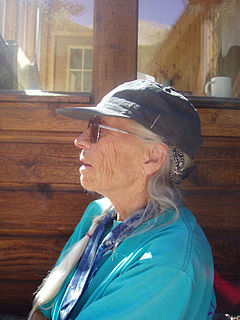A Quote by Eugen Herrigel
This means that the mind or spirit is present anywhere, because it is nowhere attached to any particular place. And it can remain present because, even when related to this or that object, it does not cling to it by reflection and thus lose its original mobility.
Related Quotes
Furthermore, it is not that Spirit is present but you need to be enlightened in order to see it. It is not that you are one with Spirit but just don't know it yet. Because that would also imply that there is some place Spirit is not. No, according to Dzogchen, you are always already one with Spirit, and that awareness is always already fully present, right now. You are looking directly at Spirit, with Spirit, in every act of awareness. There is nowhere Spirit is not.
Why must I cling to the customs and practices of a particular country forever, just because I happened to be born there? What does it matter if its distinctiveness is lost? Need we be so attached to it? What's the harm if everyone on earth shares the same thoughts and feelings, if they stand under a single banner of laws and regulations? What if we can't be recognized as Indians any more? Where's the harm in that? No one can object if we declare ourselves to be citizens of the world. Is that any less glorious?
To think that practice and realization are not one is a heretical view. In the Buddha Dharma, practice and realization are identical. Because one's present practice is practice in realization, one's initial negotiating of the Way in itself is the whole of original realization. Thus, even while directed to practice, one is told not to anticipate a realization apart from practice, because practice points directly to original realization.
When a person does not think, "Where shall I put it?" the mind will extend throughout the entire body and move to any place at all. . . . The effort not to stop the mind in just one place - this is discipline. Not stopping the mind is object and essence. Put it nowhere and it will be everywhere. Even in moving the mind outside the body, if it is sent in one direction, it will be lacking in nine others. If the mind is not restricted to just one direction, it will be in all ten.
If Spirit has any meaning, it must be omnipresent, or all-pervading and all-encompassing. There can't be a place where Spirit is not, or it wouldn't be infinite. Therefore, Spirit has to be completely present, right here, right now, in your own awareness. That is, your own present awareness, precisely as it is, without changing it or altering it in any way, is perfectly and completely permeated by Spirit.
But the past does not exist independently from the present. Indeed, the past is only past because there is a present, just as I can point to something over there only because I am here. But nothing is inherently over there or here. In that sense, the past has no content. The past - or more accurately, pastness - is a position. Thus, in no way can we identify the past as past
The purpose of seasonal festivals is periodically to revive the topocosm. Gaster coined this word from the Greek - topo for place and cosmos for world order. Topocosm means "the world order of a particular place." The topocosm is the entire complex of any given locality conceived as a living organism, not just the human community but the total community - the plants, animals and soils of the place. The topocosm is not only the actual and present living community but also that continuous entity of which the present community is but the current manifestation.
A thinking mind is not swallowed up by what it comes to know. It reaches out to grasp something related to itself and to its present knowledge (and so knowable in some degree) but also separate from itself and from its present knowledge (not identical with these). In any act of thinking, the mind must reach across this space between known and unknown, linking one to the other but also keeping visible to difference. It is an erotic space.






































